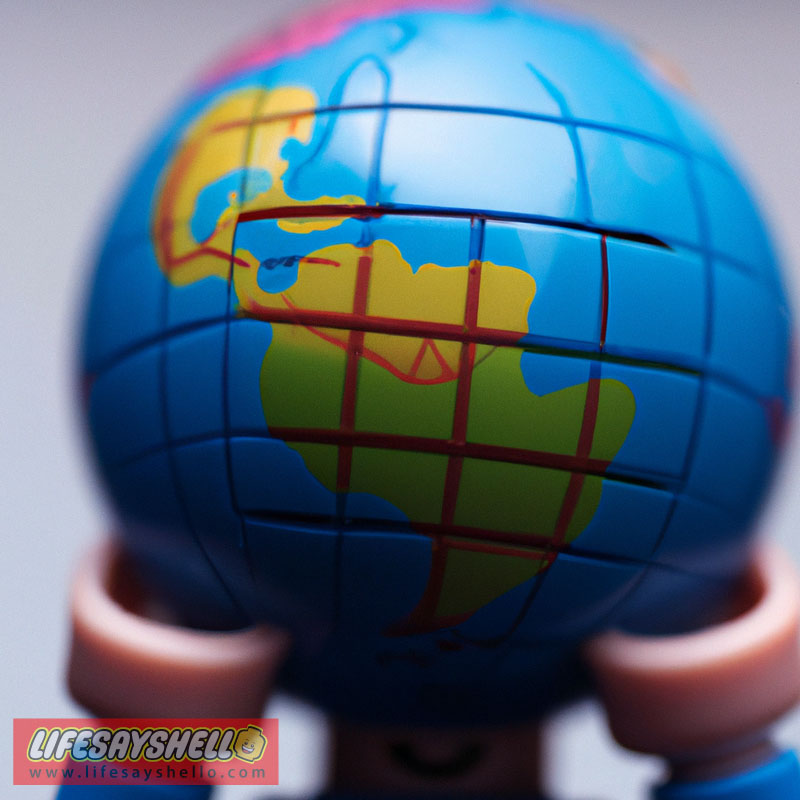Are Islam and Muslim the Same? Unraveling the Differences and Understanding Their Significance

In today's interconnected world, it's more important than ever to understand and appreciate the diverse cultures and religions that make up our global community. One common area of confusion is the distinction between Islam and Muslim. Are they the same thing, or do they represent different aspects of a belief system? In this article, we'll delve into the key differences between Islam and Muslim, and explore the significance of understanding these distinctions for promoting tolerance and respect.
Are Islam and Muslim the Same? Understanding the Key Differences
Introduction
Islam and Muslim are two terms that are often confused or misunderstood by many people. This confusion can lead to miscommunication and a lack of understanding of the rich history and culture of the Islamic faith. In this article, we'll clarify the distinction between Islam and Muslim, providing a comprehensive understanding of their meanings and the importance of recognizing the differences between them.
What is Islam?
Islam is a monotheistic religion founded by Prophet Muhammad in the 7th century CE. It is the second-largest religion in the world, with over 1.8 billion followers, known as Muslims. The teachings of Islam are based on two primary sources: the Quran, which is the holy book of Muslims, and the Hadith, which are the sayings and deeds of the Prophet Muhammad and his companions.
The word "Islam" itself means "submission" or "surrender" to God, who is called Allah in Arabic. This submission is a fundamental concept in the Islamic faith, as it represents the believer's complete devotion to the will of Allah. By submitting to Allah, Muslims believe they can achieve peace, happiness, and eternal salvation.
Who are Muslims?
A Muslim is a person who follows the religion of Islam. Muslims believe in one God, Allah, and his messengers, known as prophets. These prophets include Adam, Noah, Abraham, Moses, Jesus, and Muhammad, with Muhammad being the final prophet in the Islamic tradition. Muslims believe that these prophets were sent by Allah to guide humanity and deliver his divine message.
Muslims practice their faith by adhering to the five pillars of Islam, which are:
- Shahada (Faith): The declaration of faith, which states, "There is no god but Allah, and Muhammad is his messenger."
- Salat (Prayer): The performance of five daily prayers, facing the Kaaba in Mecca.
- Zakat (Charity): The giving of alms to the poor and needy, typically calculated as 2.5% of a Muslim's annual savings.
- Sawm (Fasting): The observance of fasting during the holy month of Ramadan, where Muslims abstain from food, drink, and other physical needs from dawn until sunset.
- Hajj (Pilgrimage): The undertaking of a pilgrimage to the holy city of Mecca, at least once in a lifetime, if physically and financially able.
Key Differences Between Islam and Muslim
While Islam and Muslim are related terms, they are not interchangeable. Islam refers to the religion itself, while Muslim refers to the individual who follows the religion. Using these terms correctly is essential for accurate communication and understanding.
Here are some examples of correct and incorrect usage of the terms:
- Correct: "I am a Muslim" or "I follow Islam."
- Incorrect: "I am an Islam" or "I follow Muslim."
Similarly, when discussing aspects of Islamic culture or art, it is appropriate to use the terms "Islamic" or "Muslim" as adjectives, but not "Islam" or "Muslimic":
- Correct: "Islamic art" or "Muslim culture."
- Incorrect: "Islam art" or "Muslimic culture."
Confusing these terms can lead to misunderstandings and misinterpretations of the Islamic faith and its followers. By recognizing the difference between Islam and Muslim, we can foster a more accurate and respectful understanding of this diverse and vibrant religion.
The Importance of Understanding the Distinction
In an increasingly globalized world, it is crucial to be knowledgeable about and respectful of different cultures and religions. Understanding the distinction between Islam and Muslim is a fundamental step in promoting tolerance, respect, and open-mindedness. By educating ourselves and others about the correct usage of these terms, we can help dispel misconceptions and stereotypes that may arise from confusion or misinformation.
Education plays a vital role in fostering understanding and acceptance. By learning about the rich history, traditions, and beliefs of Islam, we can gain a deeper appreciation for the faith and its followers. This understanding can help break down barriers, encourage dialogue, and ultimately contribute to a more inclusive and harmonious world.
Conclusion
In summary, Islam and Muslim are not the same thing. Islam is the religion founded by Prophet Muhammad in the 7th century CE, while Muslim refers to an individual who follows the Islamic faith. Understanding the distinction between these terms is essential for promoting accurate communication, respect, and tolerance.
As we continue to learn and grow in our understanding of different cultures and religions, let us remember the importance of open-mindedness and empathy. By embracing the diversity that makes up our global community, we can work together to create a more inclusive and harmonious world for all.




Comments